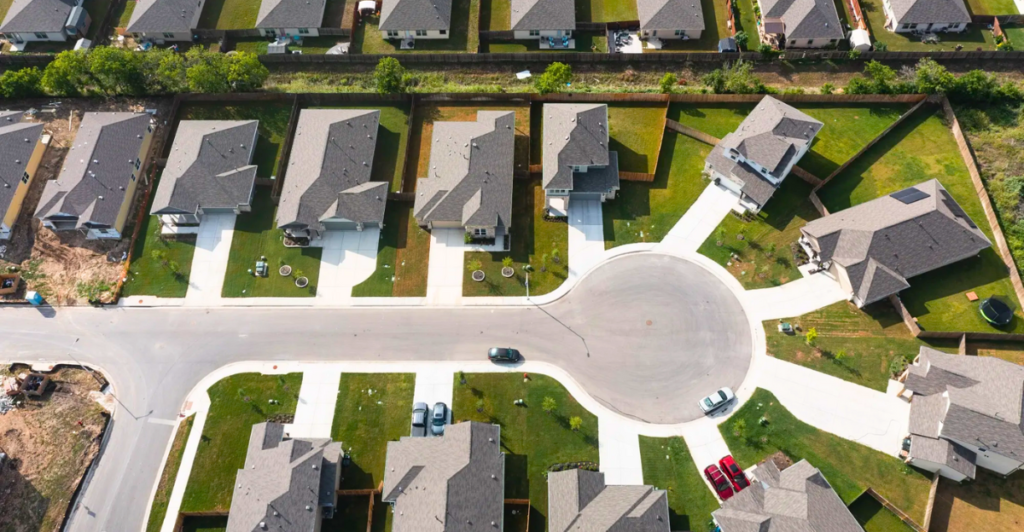
Purchasing a home was once one of life’s grand milestones—marriage, babies, and that dream car you most likely can’t park in the city.
But recently, thousands of Americans are backing out after the ink on contracts has dried. In new Redfin data, almost 52,000 home buying deals fell apart in March alone.
That’s 13.4% of all sales—a pre-COVID early benchmark rate. What’s happening here? Is the consumer just spooked by higher mortgage rates, or is something more sinister cooking beneath the surface of the economy? Let’s take a look.
What the Data Is Telling Us

Redfin’s March report paints a stark—albeit troubling—picture. Over 1 in 8 pending home buys were withdrawn.
This is the second highest March ever for fall-throughs, second only to March 2023 and the notorious March 2020, when the world effectively shut down. So, what’s different? Cancellations are no longer driven by fear or lockdowns as in the early pandemic, but by growing uncertainty over the economy, jobs, and affordability.
Buyers are stepping back, not due to affordability issues, but because they’re unsure whether buying is even necessary anymore.
Why This Matters (Politically and Economically)

Low home values were the hottest topic in the 2024 presidential election. President Trump campaigned on reducing the price of homes and building of them, but opponents argue his economic policies—particularly tariffs and enforcement of deportations—could have the opposite effect.
If these policies have recessionary-level impacts, home purchasing will fall even lower. With employment insecurity on the rise and pink slips looming on the horizon, few Americans wish to make long-term commitments.
In this situation, home sales aren’t simply about property—they’re about believing in the economy’s future.
Which Cities Are Getting Hit the Hardest

Those markets that increased most during the pandemic are currently seeing the highest cancellation rates. Orlando is at the front with almost 19% canceling out of transactions.
San Antonio, Fort Worth, Las Vegas, and a few major Florida cities closely follow. Such markets expanded in a hurry and expanded rapidly and significantly—specifically Texas and Florida—and are now enduring greater inventories and fewer shoppers.
It’s the old case of a classic boom turning into… well, maybe not a bust, but certainly a slowdown. Supply’s high, confidence’s low. Not exactly the best selling mix.
The Concession Game Is On

Sellers are offering goodies in an effort to make deals stick. Concessions—such as assistance with closing costs, repairs, or even purchasing down the mortgage rate—now comprise approximately half of all transactions.
In Seattle alone, a remarkable 71% of sales contained seller concessions. Buyers are requiring more, and sellers feel pressured to meet those demands.
This shift does not merely portend tougher market conditions—it heralds how profoundly negotiating power has migrated away from sellers and in favor of anxious, apprehensive buyers who need a little bit of added inspiration to sign on the dotted line.
What Buyers Are Thinking (And Fearing)

Real estate agents are noticing that the tone in buyers is changing. Buyers are no longer negotiating fixes, they’re doing whatever they can to reduce monthly payments, says Redfin’s Chaley McVay.
And why shouldn’t they? Interest rates remain elevated, and buyers are noticing layoffs begin to enter the headlines.
Nobody wants to purchase when the market is as high as it is, particularly when they expect to be cutting jobs or face runaway costs. Affordability concerns are influencing nearly every decision.
The Role of Rising Mortgage Rates

Numbers time. Mortgage rates have increased significantly from pandemic lows, and that’s driven monthly payments into dizzying figures—even though house prices themselves haven’t moved much. To many potential purchasers, that implies stretching budgets uncomfortably or leaving altogether.
Sellers, particularly those who purchased at the 2021-22 low-rate madness, are experiencing an uncomfortable truth: they can’t get the price they want, and they may not be able to have the next property they want to move into, either. Therefore, transactions collapse.
Recession Fears Are Changing Buyer Behavior

Redfin’s chief economist, Chen Zhao, simply stated: people are nervous. Betting markets put the odds of a recession at over 50% and that’s making people keep their wallets close to their chests.
Redfin found that nearly 1 in every 4 Americans are delaying big purchases—houses included—because of financial concerns.
People aren’t worried about just about buying a house; they are worried about keeping their jobs, buying groceries, and paying insurance. In uncertain times, big financial moves are the first to get postponed.
Is There a Silver Lining for Buyers?

Oddly, yes. If you’re a buyer with solid finances, this might actually be a decent time to shop around. Less competition, more concessions, and possibly lower prices ahead? It’s not the worst deal.
And if mortgage rates start to fall again (as some predict), today’s buyers could end up ahead. All that aside, the window of opportunity will not remain open long.
If the economy further deteriorates, even bargain hunters might start looking elsewhere. Still—it’s a fleeting moment of leverage for those with the ability to act.
What Comes Next?

It is difficult to predict what comes next. Much will hinge on whether President Trump’s economic policies stabilize the housing market—or further destabilize it.
If tariffs push consumer prices up and trigger a recession, housing demand will likely slide further. Sellers may have to offer even more just to keep deals from falling apart.
For now, the market is in a weird in-between: it’s not crashing—but it’s certainly not booming either. If you’re in the game—buying, selling, or just watching—it’s time to stay alert and play smart.
Discover more trending stories and Follow us to keep inspiration flowing to your feed!

Craving more home and lifestyle inspiration? Hit Follow to keep the creativity flowing, and let us know your thoughts in the comments below!
